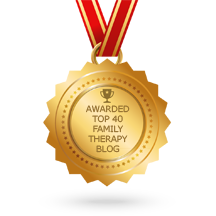Two nights ago, a mother and her 13-year-old son, David, had one of those surprisingly delightful conversations. One in which his parent felt validated that her efforts to help her child grow are paying off. He is becoming a man. She has helped guide him to be warm, kind, tender, and hopeful.
In this moment with David, the conversation turned to the topic of soulmates. The timing seemed right so mom inquired about what his soulmate might look like. She figured his answer would about what physical traits he’d want for his perfect partner. After all, he’s a 13-year-old boy, so what would he say besides blonde hair, blue eyes? Instead he said, with yearning in his voice, “Someone who is patient. Someone that accepts me.”
Just a year ago, while speaking with this same young man about our first Love & Autism event he commented, “I think it’s love versus autism…These two things don’t go together.” As he said this, he looked at me with a deep sadness in his eyes that made my heart hurt. To this I responded, “I hope your life proves you wrong. I put the ‘&’ between love and autism for a reason.” Where did David get this message about autism?
David, who was diagnosed with autism in early childhood, is not alone in his feelings of hopelessness when reflecting on relationships. At 12-years-old, he wanted a social life that had not come to fruition. He wanted to have someone to share his witty jokes with on a Saturday afternoon. He wanted to be part of a partnership. He wanted to be part of an ‘&.’ Where was David’s ‘&?’
My role as a clinician is to develop the ‘&.’ Too often within the autism community, success is measured “in spite of” having autism. Mainstream discussions of individuals on the spectrum use words such as “despite having autism” or “she overcame autism.” When success is framed in this way, the disease model or deficiency model is perpetuated, thus making the message part of the problem.
We need to challenge the message that successes can only be viewed as triumph over the disorder. I created Love & Autism: A Conference with Heart as one way to challenge and change this dominant message. It is harmful to both those with autism and their family members, not to mention the world, to perpetuate the belief that one must rise above autism to become someone.
Now back to David.
I have had the privilege of inviting this young man to be an usher for Anita and Abraham’s First All-Autism Wedding taking place on September 26, 2015, at 4:30 pm. I shared with him the significance of this event, that this is a wedding between two people on the autism spectrum and it is a chance for the world to see that people with autism can and do have healthy relationships. Before I could go on to explain the potential social change for the autism community, this young man dropped his head into his hands. When he looked up, he had tears in his eyes. He said, “I get it. I know why this is important. I’ve been discriminated against because of my autism…I’ll be there.”
David added, “It’s the people that are supposed to help [who are] treating me as if I’m ‘stupid’ or thinking I’ll be friends with anyone because I have autism. Not believing that I would want to be as selective as other teens in deciding who to hang out with. It hurts when people tell me to join a social skills group and the ‘rules’ are so very basic or simply odd that I’m befuddled by the advice. When I question it, with those condescending eyes and in a sing-songy voice, they tell me that I’m not allowed to have an opinion. When people give me projects to cold call other students so that I can practice my ‘social skills’ I finally get it…they don’t think I’m capable of real relationships.” We at Love & Autism agree with David—this is not okay. That is why we have worked hard to show the world a different view of autism: One that supports the values those with autism bring to relationships, because they have autism, not ‘in spite’ of their autism.
I’m not sure what David’s future will hold. What I do know is that he is worthy of giving and receiving love throughout his life—in friendships, intimate relationships, professional partnerships—and he has autism.
